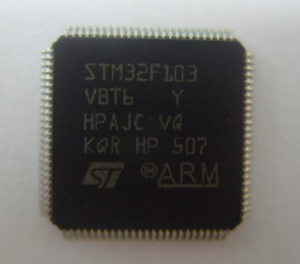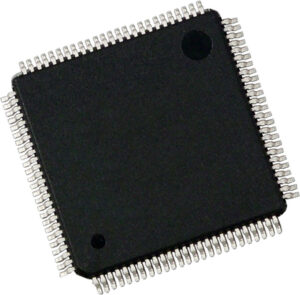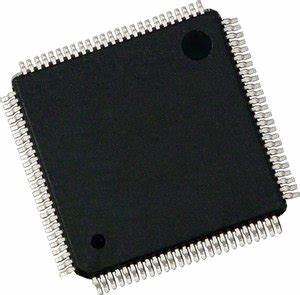 Reverse Encrypted STM32F103VB Microprocessor Protection
Reverse Encrypted STM32F103VB Microprocessor Protection
Reverse Encrypted STM32F103VB Microprocessor Protection and clone stm32f103vb locked mcu flash heximal file, copy flash memory firmware to arm microcontroller stm32f103vb;

Reverse Encrypted STM32F103VB Microprocessor Protection and clone stm32f103vb locked mcu flash heximal file, copy flash memory firmware to arm microcontroller stm32f103vb
The advanced-control timer (TIM1) can be seen as a three-phase PWM multiplexed on 6 channels. It has complementary PWM outputs with programmable inserted dead-times. It can also be seen as a complete general-purpose timer. The 4 independent channels can be used for
- Input capture
- Output compare
- PWM generation (edge- or center-aligned modes)
- One-pulse mode output
If configured as a general-purpose 16-bit timer, it has the same features as the TIMx timer. If configured as the 16-bit PWM generator, it has full modulation capability (0-100%).
In debug mode, the advanced-control timer counter can be frozen and the PWM outputs disabled to turn off any power switch driven by these outputs.
Many features are shared with those of the general-purpose TIM timers which have the same architecture. The advanced-control timer can therefore work together with the TIM timers via the Timer Link feature for synchronization or event chaining to recover stm32f103c6 locked mcu flash full content.

clone STMicroelectronics-STM32F103VB microprocessor flash memory content and copy embedded heximal file and binary program to new mcu chip STMicroelectronics-STM32F103VB
There are up to three synchronizable general-purpose timers embedded in the STM32F103xx performance line devices. These timers are based on a 16-bit auto-reload up/down counter, a 16-bit prescaler and feature four independent channels each for input capture/output compare, PWM or one-pulse mode output. This gives up to 12 input captures/output compares/PWMs on the largest packages.

Desbloquee el microcontrolador de brazo MCU STM32F105VBT6 y lea el firmware integrado heximal de la memoria flash
The general-purpose timers can work together with the advanced-control timer via the Timer Link feature for synchronization or event chaining. Their counter can be frozen in debug mode. Any of the general-purpose timers can be used to generate PWM outputs. They all have independent DMA request generation when recovering arm microprocessor stm32f103cb flash program.
These timers are capable of handling quadrature (incremental) encoder signals and the digital outputs from one to three Hall-effect sensors.